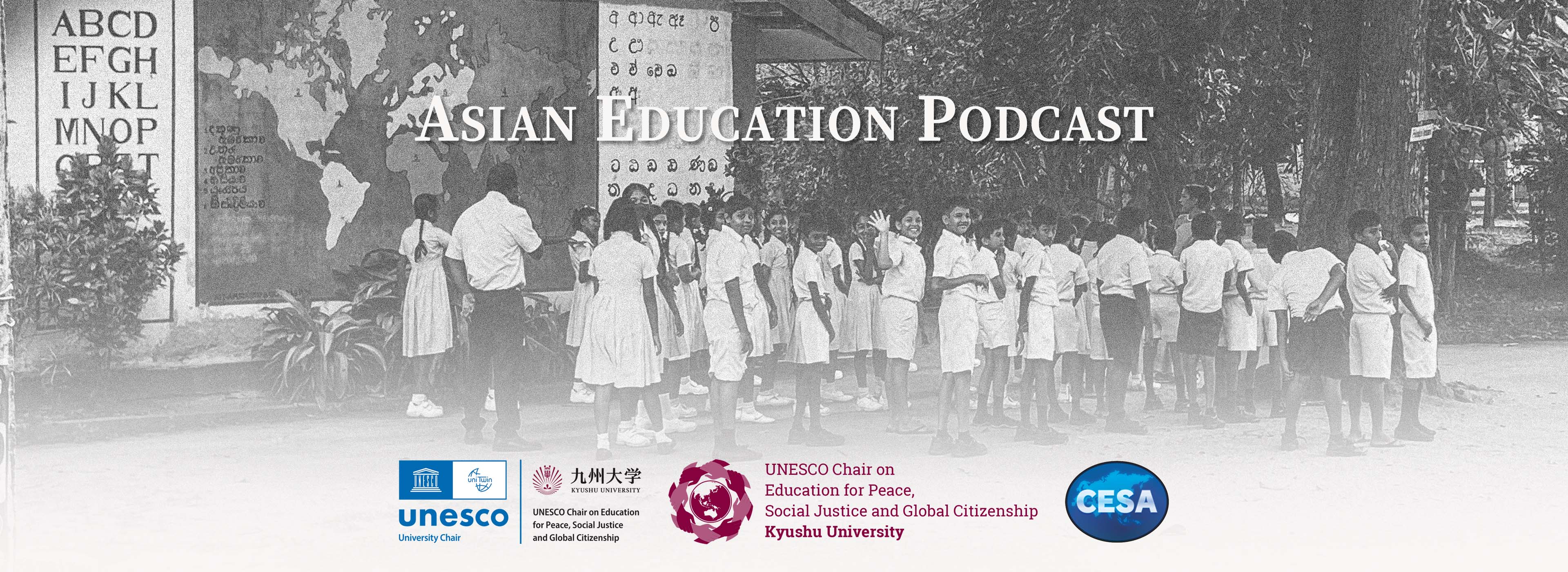
In this episode, Edward Vickers interviews Professor Krishna Kumar ‘on location’ in Chandigarh, India. Professor Kumar, formerly of the Central Institute of Education at Delhi University, is a distinguished theorist of education and prominent commentator on a range of educational issues in India and more widely. From 2005 to 2010, he was the Director of India’s National Council for Educational Research and Training. Appointed to that position by the new Congress-led UPA government shortly after its 2004 electoral victory, Prof. Kumar took charge of an institution widely seen as having been used for political purposes by the preceding BJP-led NDA government.
The conversation begins with a survey of India’s complex educational landscape, especially as it pertains to the roles of the central (‘Union’) and state governments in curriculum development. Prof. Kumar emphasises the often under-appreciated strength of Indian federalism, and its significance for education. The design of curricula and teaching materials for most Indian schools is determined at state or provincial level, and curriculum development in powerful states or provinces such as Bengal, Tamil Nadu and Kerala is often conducted with limited reference to debates in Delhi. Nevertheless, NCERT's curricula and textbooks hold significance not only for the minority of schools directly under the authority of the central government, but also as a point of reference for curriculum developers at state level (especially in some of India’s smaller states).
Reflecting on the reforms that NCERT undertook during his Directorship, Prof. Kumar explains how he saw his task as involving far more than restoring or reaffirming the secular tenets of the school curriculum that the BJP had undermined. He elaborates the child-centred pedagogic vision that informed the curriculum reforms he oversaw, and how this was related to efforts to transcend simplistic ideological or political divisions.
Turning to perhaps the most sensitive area of the curriculum, the teaching of history, Prof. Kumar explains how he and his colleagues sought to apply the child-centred approach to this and related areas such as political or citizenship education. The approach to history education inherited from the colonial era had presented students with a ready-made, monolithic and ostensibly ‘correct’ narrative of the past. Instead, Prof. Kumar’s team at NCERT sought to devise a curriculum that would make learners aware of the constructed and contested nature of history as a form of knowledge. The new curriculum was designed not simply to tell children what we know about the past, but crucially to prompt them to reflect on how we know what we know.
This approach to teaching history implies an emphasis on the agency of the learner - a vision of students not just as passive recipients of pre-packaged historical knowledge, but as active interpreters of historical evidence. This in turn implies a vision of students as active citizens in-the-making. But as Prof. Kumar explains, the promotion of active citizenship was more explicitly the remit of a new subject that was introduced as part of the NCERT’s curriculum reforms: Social and Political Life. This was designed to replace the old Civics subject, whose didactic pedagogical approach was again traceable to a colonial concern with disciplining and controlling a subject population. By contrast, Social and Political Life sought to encourage students to bring issues of direct concern to them into the classroom, as a means of realising the child-centred vision underpinning the curriculum reforms.
The participatory vision of pedagogy was also reflected in aspects of the curriculum development process itself. Here there was also a consultative, participatory element, involving discussions with teachers from various parts of India (facilitated by satellite link-ups with more remote parts of the country). These consultations were important not only for bringing into play different perspectives on the purposes or aims of various school subjects, but also for drawing attention to complex factors - such as teachers’ capacity and the availability of academic resources - with implications for curriculum design and implementation.
Moving on from discussion of the curriculum reforms of the early 2000s, the conversation touches on more recent developments in relevant to education. These include the implications of the Right to Education legislation introduced under the Congress-led administration; the effects of widespread social media use on the consciousness and political engagement of young people; and the educational impact of the recent Covid pandemic. The conversation also touches on the increasing marketisation and commercialisation of the education sector, and what this means for equality of access and curricular emphasis. (These issues are discussed more fully in Season 1: Episodes 5 and 6.)
This interview was conducted in late March, 2023, by which point the reformed curriculum had been in use for around 17 years. Many observers had expected the new curriculum to be swept away after the BJP ousted the Congress-led government in the elections of 2014. But a committee tasked by the new administration with reviewing the curriculum concluded that there was no need for major reform. In celebrating the unexpected longevity of the reformed curriculum, Prof. Kumar thus comments here that is has ‘not only survived, but sustained with splendid stability’. However, as we discuss in a follow-up interview (Episode 8), significant revisions to NCERT textbooks introduced in April 2023 have since required that this verdict be updated.
Suggested readings:
Latika Gupta (2015). ‘Making Reflective Citizens: India’s new textbooks for Social and Political Life’, in Vickers and Kumar (eds), Constructing Modern Asian Citizenship. London and New York: Routledge, 105-124.
Krishna Kumar (2014). The Politics of Education in Colonial India. New Delhi: Routledge.
Krishna Kumar (2002). Prejudice and Pride: School Histories of the Freedom Struggle. New Delhi: Penguin.
Krishna Kumar (2016). Education, Conflict and Peace. New Delhi: Orient Black Swan (especially Chapter 2, ‘Children and History’).

